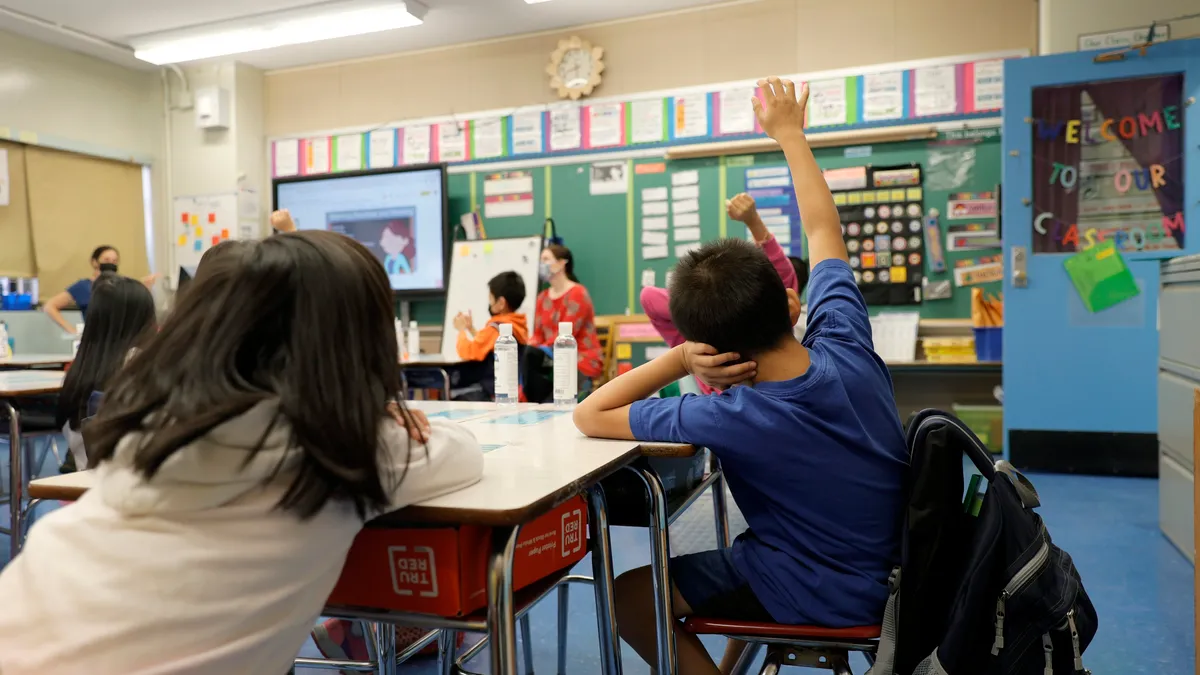Dive Brief:
- School leaders have a responsibility to promote civic education, even during times when there is hyper-partisanship and harsh rhetoric, said a new report published in the journal Democracy & Education that focused on the importance of K-12 educators’ roles in preserving democracy.
- To promote democratic aims, districts could support civic lessons and activities and provide professional development that help teachers bolster students’ nonpartisan exploration of controversial issues, the report recommends.
- Recent intense debates over mask mandates, COVID-19 safety protocols, anti-racist lessons and the rights of transgender students, however, have made some educators cautious about classroom discussions on current events. “We're at a moment where educating for democracy may be more difficult than it has been in the recent past, but it clearly is more important,” said report co-author John Rogers, a professor of education at the University of California, Los Angeles.
Dive Insight:
The report's authors said their analysis of survey results of public high school principals conducted in summer 2018 highlight areas of hope and concern. For example, they found that the partisan leaning of a high school’s community did not influence a school’s support for a mainstream vision for civic education.
They also found that principals who are personally civically active and who follow news of local events are more likely to encourage civic awareness and engagement in their schools.
But the authors also found that high schools in liberal communities were more likely than those in conservative communities to support discussions of controversial issues. The avoidance of discourse on hot button issues could hamper students’ understanding about how they can become civically engaged and their awareness of how to participate in respectful dialogue about contentious topics.
“District leaders should stand up and say it's important that we develop young people who have the interest and capacity to solve problems together, to dialogue with one another, even when they don't agree,” said Rogers, who is also director of the Institute for Democracy, Education and Access at UCLA.
Rogers acknowledges the difficulty educators have in promoting civic participation and awareness, as some community members may be concerned that those lessons are indoctrination rather than instruction. His advice to school leaders is to make sure no sector of the community feels like they are being assaulted and to teach students about respectful discourse and appropriate ways to engage in controversial conversations.
The authors also offer these recommendations:
- Provide opportunities for teaching about tolerance and how to evaluate resources for credibility.
- Offer students a variety of civic simulations and choices for community projects and civically oriented extracurricular activities.
- Support teachers by providing professional development opportunities and communities of practice to discuss best practice approaches for civic education.
- Make civic mindfulness part of a school’s theme by including students in decision-making and encouraging them to share ideas and practice leadership skills.












